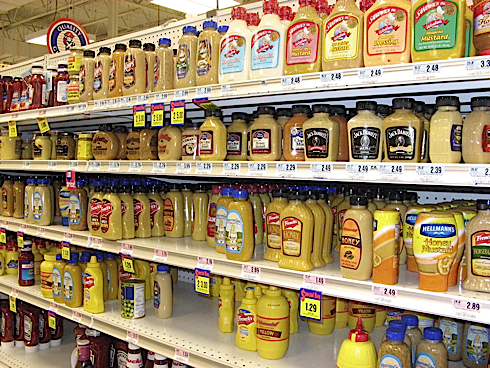The Satisfaction Paradox
[Translations: Japanese]
What if you lived in a world where everything around you was just what you wanted? And there was tons of it. How would you make a choice since all of it — 100% — was just what you liked?
What if you lived in a world where every great movie, book, song that was ever produced was at your fingertips as if “for free”, and your filters and friends had weeded out the junk, the trash, and anything that would remotely bore you. The only choices would be the absolute cream of the cream, the things your best friend would recommend. What would you watch or read or listen to next?
What if you lived in a miraculous world where the only works you ever saw were ones you absolutely loved, including the ones that were randomly thrown in? In other words, you could only watch things perfectly matched to you at that moment. But the problem is that in this world there are a thousand times as many works as you have time in your long life to see. How would you choose? Or would you?
In theory, you would not choose since it does not matter. Leave it to serendipity, since every option is wonderful. If your filtering/recommendation system really is working, then anything you accept from them should be satisfying.
The paradox is that not-choosing may not be satisfying!
We may need to make choices in order to be satisfied, even if those choices lead to less than satisfying experiences. But of course this would be less than optimal satisfaction. Thus, there may be a psychological dilemma or paradox that ultimate satisfaction may ultimately be unsatisfying.
This is the psychological problem of dealing with abundance rather than scarcity. It is not quite the same problem of abundance articulated by the Paradox of Choice, the theory that we find too many choices paralyzing. That if we are given 57 different mustards to choose from at the supermarket, we often leave without choosing any.

The paradox of satisfaction suggests that the tools we employ to increase our satisfaction of choices — filters and recommendations — may be unsatisfying if they diminish the power of our choices. Another way to say this: no system can be absolutely satisfying.
This is all theoretical at the moment because even the best of our filters and recommendation engines do not give us anywhere near perfect matches. I still encounter tons of bad stuff, and plenty of mediocre stuff, and too much marginally good stuff. But the technology is getting better.
The main driver of the paradox however is not the tools we use to filter out the noise, but the exponential increase of good signals. New tools make it easier and easier to produce a book, compose a song, make a video, design a game. The total number of these are piling up much faster than our attention span, and even given extreme versions of Paredo’s law, the small percent of great stuff is still too much.
For instance, if because of my filters, I find only one in a million works of art, or inventions, delight me (a very harsh ratio), and 6 billion adults each make one creation a year, that produces a stream of 18 new I’m-crazy-about creations per day to attend to. I could not keep up with so much great stuff. Realistically I may find a greater ratio of satisfaction in some forms than others.
Let’s say that after all is said and done, in the history of the world there are 2,000 theatrical movies, 500 documentaries, 200 TV shows, 100,000 songs, and 10,000 books that I would be crazy about. I don’t have enough time to absorb them all, even if I were a full time fan. But what if our tools could deliver to me only those items to choose from? How would I — or you — choose from those select choices?
While it may be a long while before every adult is sharing art or innovations on a global scale, we can already see the abundance of good stuff piling up. Netflix has more great movies a click away — after I filter out the dross — than I can watch in my lifetime. What do I watch next? Spotify and other music streaming services will have more fantastic, I-am-in-heaven music available everywhere all the time than I can ever listen to. What do I listen to next? Google will have every book ever published only an eight of a second away, and collaborative filtering, friends recommendations and a better Amazon engine, will narrow down those stacks to the best 10,000 books for me. So what do I read next?
I believe that answering this question is what outfits like Amazon will be selling in the future. For the price of a subscription you will subscribe to Amazon and have access to all the books in the world at a set price. (An individual book you want to read will be as if it was free, because it won’t cost you extra.) The same will be true of movies (Netflix), or music (iTunes or Spotify or Rhapsody.) You won’t be purchasing individual works.
Instead you will pay Amazon, or Netflix, or Spotify, or Google for their suggestions of what you should pay attention to next. Amazon won’t be selling books (which are marginally free); they will be selling their recommendations of what to read. You’ll pay the subscription fee in order to get access to their recommendations to the “free” works, which are also available elsewhere. Their recommendations (assuming continual improvements by more collaboration and sharing of highlights, etc.) will be worth more than the individual books. You won’t buy movies; you’ll buy cheap access and pay for personalized recommendations.
The new scarcity is not creative products but satisfaction. And because of the paradox of satisfaction, few people will ever be satisfied.


